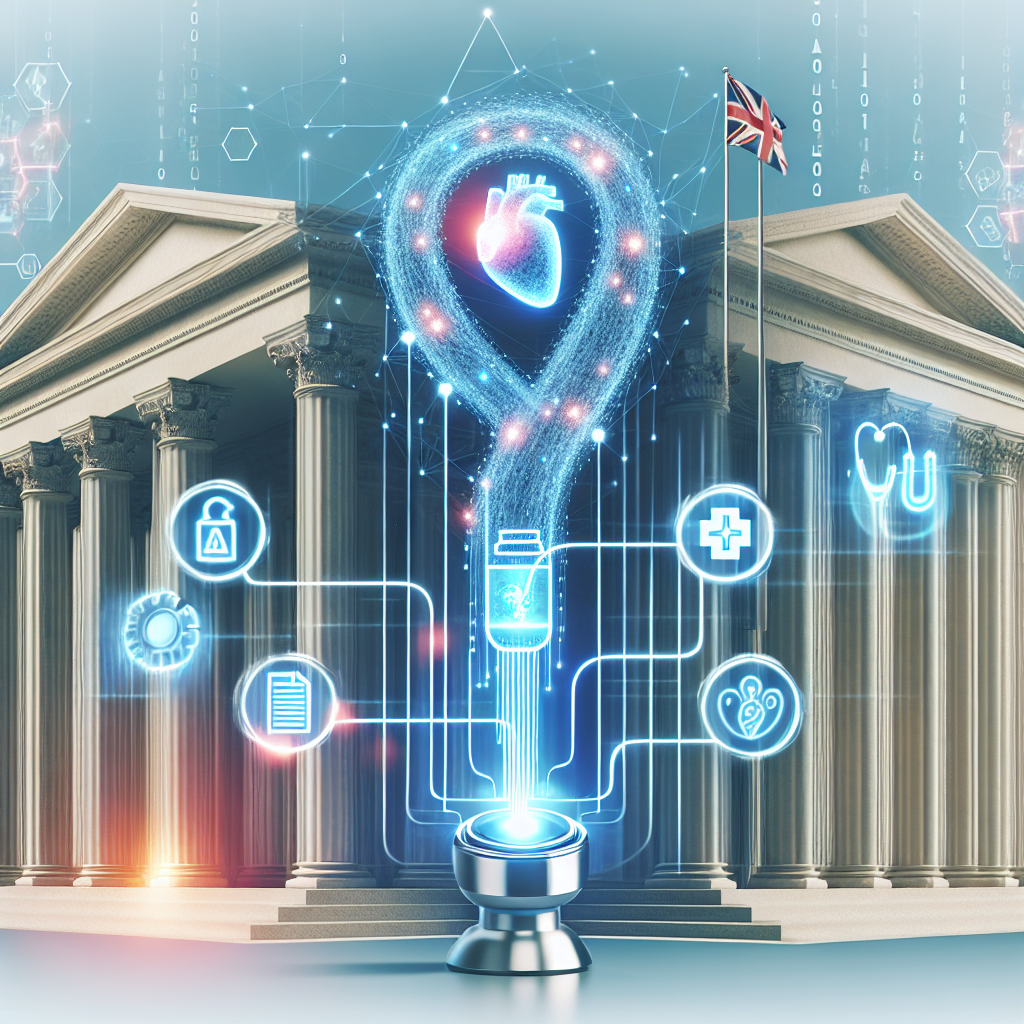AI and the Future of Government Healthcare Systems
Artificial Intelligence (AI) has become a buzzword in recent years, and its implications for the future of government healthcare systems are immense. From improving patient care to streamlining administrative processes, AI has the potential to revolutionize the way healthcare is delivered and managed. In this article, we will explore the role of AI in government healthcare systems and its impact on the future of healthcare.
What is AI?
AI refers to the simulation of human intelligence processes by machines, especially computer systems. These processes include learning (the acquisition of information and rules for using the information), reasoning (using rules to reach approximate or definite conclusions), and self-correction. AI is a broad field that encompasses a variety of technologies, including machine learning, natural language processing, and robotics.
AI in Healthcare
AI has already made significant strides in the healthcare industry, with applications ranging from medical imaging to personalized medicine. In government healthcare systems, AI can help improve patient care, optimize administrative processes, and reduce costs. Here are some ways AI is being used in government healthcare systems:
1. Predictive Analytics: AI can analyze large amounts of healthcare data to identify patterns and predict future outcomes. This can help government healthcare systems allocate resources more effectively and improve patient outcomes.
2. Medical Imaging: AI-powered algorithms can analyze medical images, such as X-rays and MRIs, to assist healthcare providers in diagnosing and treating diseases. This can help government healthcare systems reduce diagnostic errors and improve patient care.
3. Virtual Health Assistants: AI-powered virtual health assistants can provide patients with personalized health information and guidance. These assistants can help patients manage chronic conditions, schedule appointments, and access healthcare services more easily.
4. Administrative Efficiency: AI can automate administrative tasks, such as billing and scheduling, to streamline healthcare operations and reduce costs. This can help government healthcare systems allocate resources more efficiently and improve overall performance.
5. Drug Discovery: AI can analyze large datasets to identify potential drug candidates and accelerate the drug discovery process. This can help government healthcare systems develop new treatments for diseases more quickly and cost-effectively.
Challenges and Considerations
While the potential benefits of AI in government healthcare systems are significant, there are also challenges and considerations to keep in mind. These include:
1. Data Privacy and Security: AI relies on large amounts of data to function effectively, raising concerns about data privacy and security. Government healthcare systems must ensure that patient data is protected and used responsibly.
2. Ethical and Regulatory Issues: AI algorithms can sometimes produce biased or inaccurate results, leading to ethical and regulatory challenges. Government healthcare systems must establish guidelines and standards for the responsible use of AI in healthcare.
3. Workforce Displacement: AI has the potential to automate many tasks currently performed by healthcare workers, leading to concerns about job displacement. Government healthcare systems must consider the impact of AI on the healthcare workforce and develop strategies to retrain and upskill workers.
4. Accessibility and Equity: AI technologies can sometimes exacerbate existing disparities in healthcare access and quality. Government healthcare systems must ensure that AI is used in a way that promotes accessibility and equity for all patients.
FAQs
Q: How can AI improve patient care in government healthcare systems?
A: AI can improve patient care in government healthcare systems by analyzing healthcare data to identify patterns and predict outcomes, assisting healthcare providers in diagnosing and treating diseases, and providing patients with personalized health information and guidance.
Q: What are some challenges of implementing AI in government healthcare systems?
A: Some challenges of implementing AI in government healthcare systems include data privacy and security concerns, ethical and regulatory issues, potential job displacement, and disparities in healthcare access and quality.
Q: How can government healthcare systems ensure the responsible use of AI in healthcare?
A: Government healthcare systems can ensure the responsible use of AI in healthcare by establishing guidelines and standards for data privacy and security, addressing ethical and regulatory issues, developing strategies to retrain and upskill the healthcare workforce, and promoting accessibility and equity for all patients.
In conclusion, AI has the potential to revolutionize government healthcare systems by improving patient care, streamlining administrative processes, and reducing costs. While there are challenges and considerations to navigate, the benefits of AI in healthcare are immense. By responsibly harnessing the power of AI, government healthcare systems can enhance the delivery of healthcare services and improve patient outcomes for years to come.

